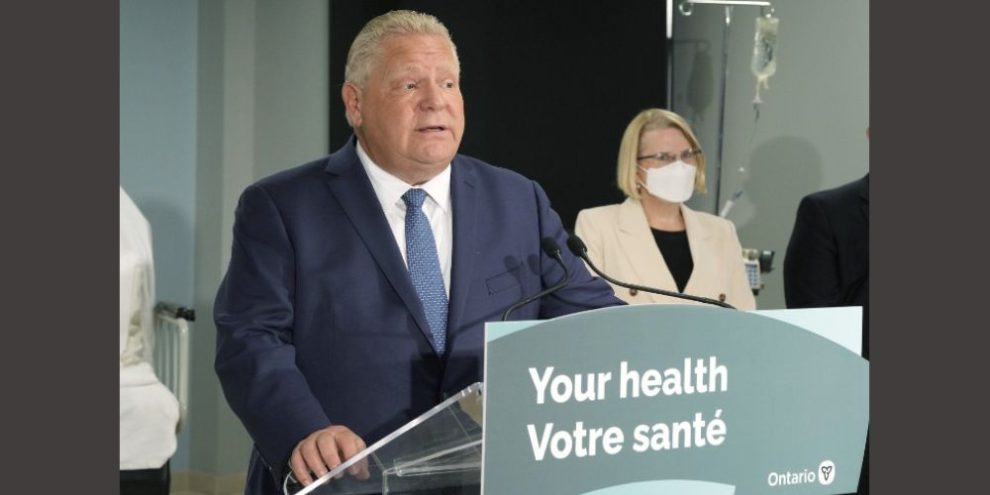
By Allison Jones in Toronto
Ontario hospital nurses are set to soon start bargaining their new contract and the province's intention to expand procedures at private clinics means hospitals will have to come to the table prepared to entice professionals to stay, their union said Tuesday.
Premier Doug Ford announced Monday that the province will fund more procedures such as cataract surgeries, MRI and CT scans and hip and knee surgeries in the community in order to reduce wait lists and ease the pressures on hospitals.
Amid concerns raised by critics is a worry that hospitals will see further staffing crunches if workers such as nurses choose to work at clinics offering weekday, 9-5 shifts, instead of the overnight and weekend work that happens in hospitals.
Bernie Robinson, the interim president of the Ontario Nurses' Association, said along with higher overall wage increases, nurses need to see better pay for those off-hours to entice nurses to do it.
"We need to see adequate shift premiums...and recognition for those hours that fall outside of the usual Monday to Friday, daytime surgical hours, which is when you would normally do your elective surgeries, which is really what (the government has) been talking about the last few days," she said during a break from a bargaining preparation session.
This round of talks, scheduled to start Jan. 30, was already going to be significant, as for the past three years the nurses – and others in the broader public sector such as teachers – have been subject to wage restraint legislation known as Bill 124.
Nurses and other workers strongly opposed the maximum raises of one per cent a year under the bill and a court recently struck it down as unconstitutional, though the government is appealing.
There is no such legislated cap for these talks and nurses are looking to catch up.
"We have big asks of this government, and of the (Ontario Hospital Association), who we will be bargaining with and we want to see significant improvements. We want to see that we are valued, and that we are respected in this workplace," Robinson said.
"We need the employers to recognize that we need to make up for some lost time. We need to make up for cost of living, and also the lost remuneration over the years that we have suffered through Bill 124."
Teachers are also currently in bargaining with the government for their first post-Bill 124 contracts. Education workers represented by the Canadian Union of Public Employees late last year negotiated a $1-per-hour raise each year, or about 3.59 per cent annually, for the average worker.
Hospital nurses currently earn $34.24 an hour as a starting salary, per their last contract, and are subject to a grid that goes up to 25 years, when they can earn $49.02 an hour.
Robinson is not divulging the specific proposals the ONA will make at the bargaining table, but said she will also be pushing for improved policies on vacation, workloads and work-life balance, as they will also help with staff recruitment and retention.
Anthony Dale, president and CEO of the OHA, said he looks forward to the negotiations.
"We greatly value Ontario's nurses," he said in an interview.
"They've performed heroically through the pandemic and they are a remarkably important partner in the delivery of health services to the people of Ontario. It's our goal to achieve a voluntarily, mutually agreed-upon collective agreement with them."
- With files from Liam Casey
This report by The Canadian Press was first published Jan. 17, 2023.
Banner image via The Canadian Press






